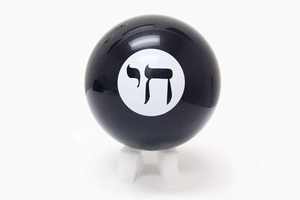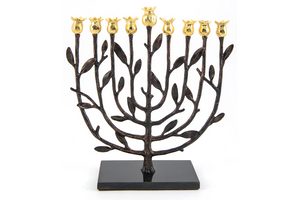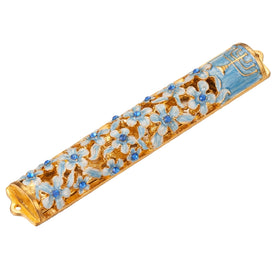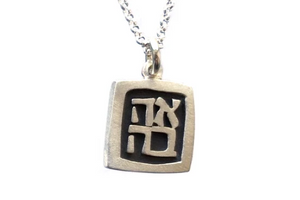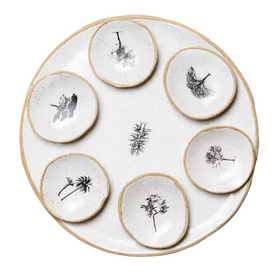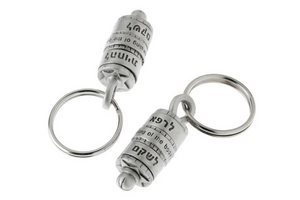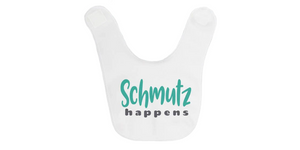
Mi Polin Bronze Mezuzah - PRZEMYSL, UL. WLADYCZE 17
This mezuzah is a part of the Mi Polin "Mezuzah From This Home" project, which commemorates the Jewish life of pre-war Poland by taking mezuzah casts from the door frames of once-Jewish homes. They symbolize the emptiness of now-vacant homes, the remembrance of those who lived there, and the reclaiming of the mezuzah, which for years remained empty but now can fulfill its role again.
Each mezuzah is cast in bronze, with a Shin and the place where it was cast engraved on the side. It has an open space in the back for a scroll. (Use the drop-down menu to purchase your mezuzah with or without a scroll.)
e.
This bronze cast commemorates the inhabitants of 17 Władycze Street, Przemyśl.
The building was mentioned for the first time in 1852. At the end of the nineteeth century, it was converted from wood to brick and decorated with eclectic ornamentation. The register of mortgages from 1894 lists the owner of 17 Władycze Street as Zygmunt Orzechowski. The last Jewish owners of the building were Kreszower and Lakser.
It was here that Salomon Karitan, an entrepreneur and teacher from Przemyśl, ran his School of Commerce. He was the author of the book Nauka o wekslu z licznymi przykładami (Bill of Exchange Explained, with Numerous Examples) and a handbook on commercial negotiations. Born in Lviv in 1868, Salomon Karitan married Hudes Retter in Przemyśl in 1905. They had two daughters, Klara and Marya. Hashomer Hacair, with nearly 500 members in 1917, had its seat in the building. There were also several small businesses in the building, beginning their activity in the following years: 1928 - Wnorowska's tailor shop; 1935 - Józef Jacak's painting and varnishing studio; 1937 - Alojzy Taworski, confectionery products.
In December 2014 we saw an untouched metal plate, typical of pre-war mezuzahs, on a front door of the building at 17 Władycze Street. With the permission of the building's owner, we opened the mezuzah and found an original scroll. The scroll was examined by a conservationist from the National Museum in Warsaw. The klaf is displayed at our Warsaw office, open to the public.
Dimensions: 7 x 1.5 inches
Material: Bronze
Made in Poland.
Mi Polin, meaning “from Poland” in Hebrew, is the first brand that designs and produces Judaica in Poland since the end of World War II, the Holocaust, and forty-five years of Communism. This contemporary design studio specializes in Jewish objects, branding for Jewish institutions, and graphic design. Their design refers to "hiddur micva" (a Slavic transliteration of “mitzvah”), which demands that ritual artifacts be beautiful, while also
emphasizing their multi-faceted nature. Mi Polin was founded by Aleksander Prugar and Helena Czernek.

